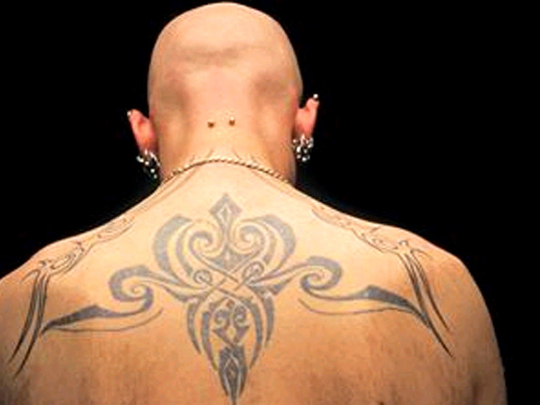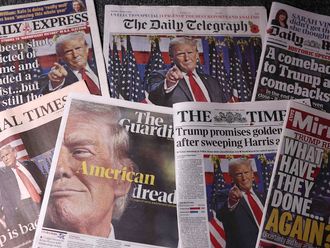
Manama: Lawmakers in Bahrain are pushing for the adoption of a law that will ban tattoos and body piercing.
The motion not to allow beauty parlors and salons to make tattoos was endorsed by the parliamentary services commission, paving the way for its discussion on the parliament floor where it is likely to be passed by the conservative MPs who dominate the lower chamber.
Liberal MPs in the upper chamber are also likely to endorse the motion, particularly since most Muslims disapprove of tattooing and that it is not a deep Arab tradition, even though tattoos can be seen in many Arab countries, mainly in rural areas.
Berber women in North Africa make small designs that usually have a symbolic meaning while many Christian women in Egypt tattoo a small cross on their wrist.
Most Arabs and Muslims tend to use henna to form designs on their hands and feet on special occasions. The skin decorations fade away after a few weeks.
Muslims oppose tattooing as well as plastic surgery on religious and social grounds.
"It involves torture, pain, and waste of money merely for the sake of one's appearance; it is, moreover, an expression of an individual's preoccupation with form rather than substance, with body rather than with spirit," Yousuf Al Qaradawi, a prominent religious scholar, said.
However, he said that plastic surgery should be allowed at times.
"It may happen that a person has an unusual physical defect that causes embarrassment, physical and psychological pain every time he or she meets people. In this case, he or she may treat the defect and alleviate the embarrassment that makes his or her life miserable," he said.
In the US, tattoo laws vary from state to state, though most ban tattoos for minors.
Military chiefs last month had to scrap a ban on tattoos decorating the saluting arm of recruits joining the US air force, following a backlash among heavily inked young Americans signing up for duty.
The air force recruiting service instituted a policy on November 25 prohibiting tattoos below the elbow on the right arm of recruits, citing "military image". The service did not want tattoos to be visible when its airmen saluted.
Tatto in figures
A Harris poll in 2008 indicated 14 per cent of the American population has at least one tattoo, a figure slightly less than the 16 per cent in a poll taken in 2003.
A 2006 poll by the Journal of the American Academy of Dermatology found that 36 per cent of Americans between ages 18 and 29 had tattoos.
In 1936, Life Magazine reported that roughly 10,000 Americans, or 6 per cent of the population, had tattoos.












